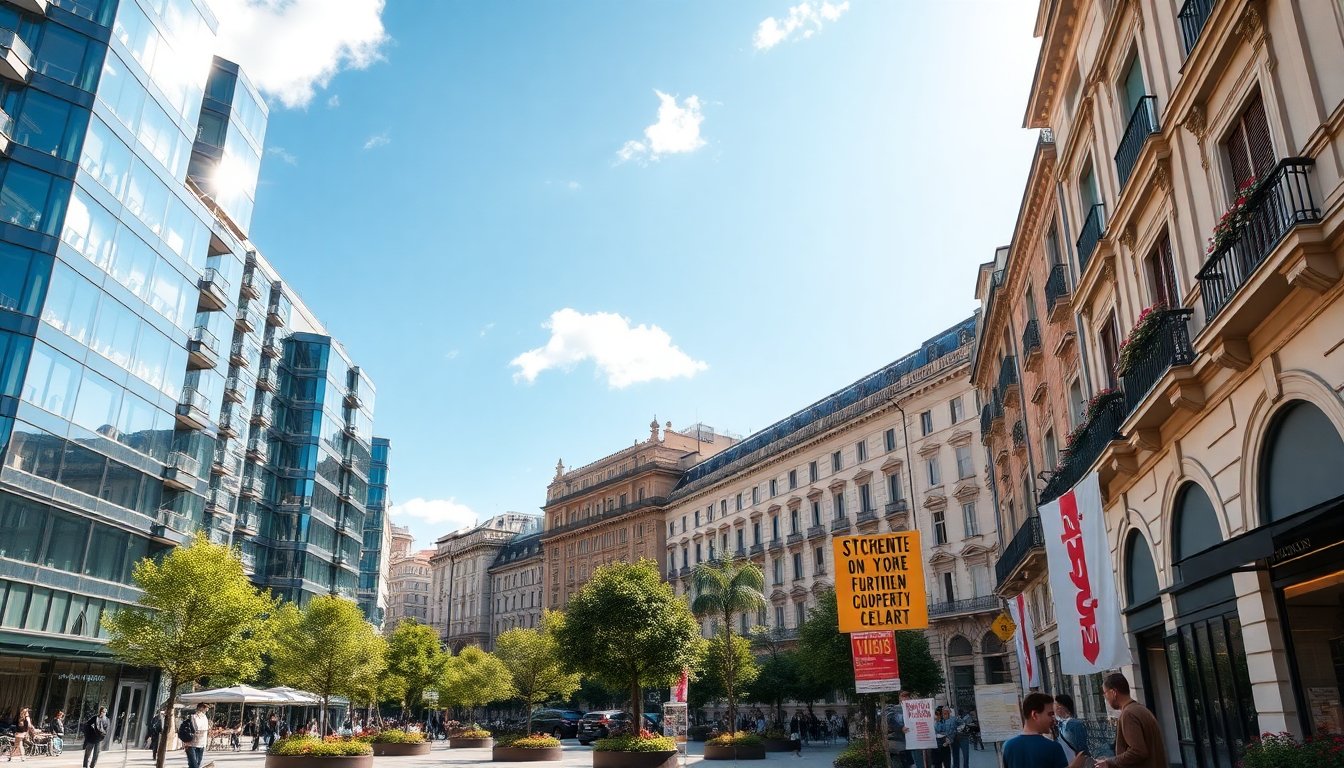Table of Contents
The world of real estate is intricately linked to various socio-political movements, and cultural activism plays a significant role. Understanding how cultural narratives, often driven by key figures in media and politics, can impact property values is essential for investors and buyers alike. This is particularly true for the luxury real estate market in cities like Milan, where these dynamics can unveil unique investment opportunities.
An Overview of the Market Dynamics
Current data from reputable sources such as OMI and Nomisma offer a detailed outlook on the luxury real estate sector. Recent trends reveal a shifting landscape influenced by several factors, including cultural activism. Influential activists and their discussions on social issues often correspond with changes in consumer behavior and preferences in real estate.
For example, neighborhoods that become hubs for cultural movements frequently see a surge in demand. Investors should closely monitor these shifts, as they can lead to increased property values and significant returns on investment (ROI). The mantra of “location, location, location” is particularly relevant; properties in areas that resonate with cultural trends can experience notable appreciation.
Identifying Promising Areas and Property Types
When exploring the most promising zones and property types, it is crucial to consider more than just physical characteristics. The cultural climate of an area can greatly influence its appeal. For instance, neighborhoods renowned for hosting social movements or cultural events tend to attract a diverse demographic seeking residences that align with their values.
Additionally, property types that cater to this market segment, such as lofts or modern condos, may experience heightened demand. Understanding the demographics and preferences of potential buyers provides insights into which property types will yield the best cap rates and cash flow. As a seasoned market analyst, I emphasize the importance of thorough research; sound data leads to informed decisions.
Price Trends and Investment Opportunities
Price trends in the luxury real estate market are often linked to broader cultural shifts. As cultural narratives evolve, so do the preferences of potential buyers, which can lead to fluctuations in property demand and pricing. Recent statistics indicate that properties located near cultural hubs are experiencing robust increases in value, making them attractive investment opportunities.
Investors should factor in these trends when evaluating potential properties. A well-situated property that aligns with the current cultural climate can provide both a comfortable living space and a strategic investment. The potential for property appreciation alongside cash flow generation makes such opportunities particularly appealing.
Practical Advice for Buyers and Investors
For buyers and investors navigating this complex landscape, several practical steps can enhance decision-making. Firstly, staying informed about local cultural movements and their influential figures can yield valuable insights into market trends. This information is crucial when assessing the potential for property appreciation.
Moreover, collaborating with local real estate professionals who grasp the nuances of the market can provide a competitive advantage. They can offer data-driven insights and assist in identifying properties that align with both investment goals and cultural trends.
Medium-Term Forecasts
Looking ahead, the relationship between cultural activism and real estate is anticipated to intensify. As society evolves, the luxury real estate market is likely to reflect these changes, presenting both challenges and opportunities. Areas that embrace cultural movements may experience sustained demand, while those resistant to change could face difficulties.
Current data from reputable sources such as OMI and Nomisma offer a detailed outlook on the luxury real estate sector. Recent trends reveal a shifting landscape influenced by several factors, including cultural activism. Influential activists and their discussions on social issues often correspond with changes in consumer behavior and preferences in real estate.0


